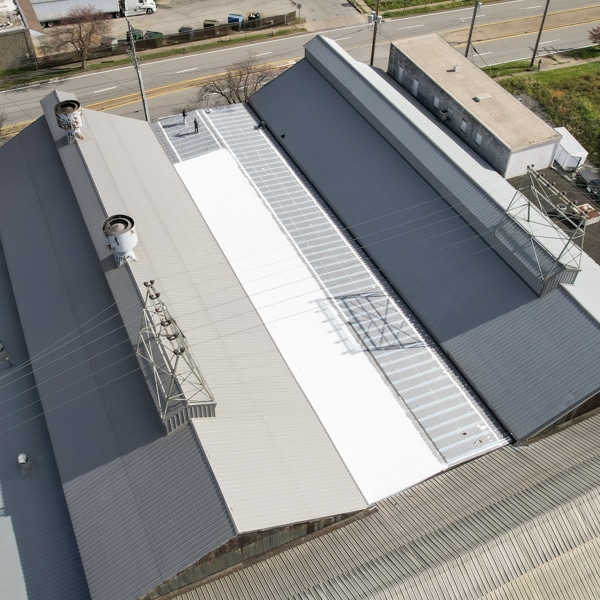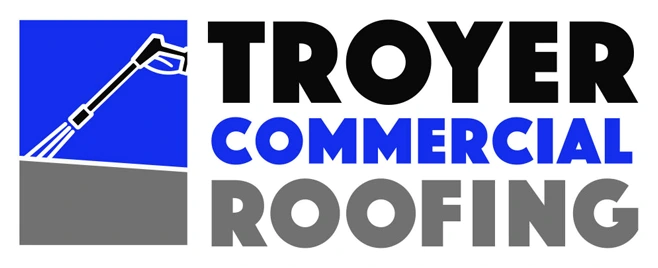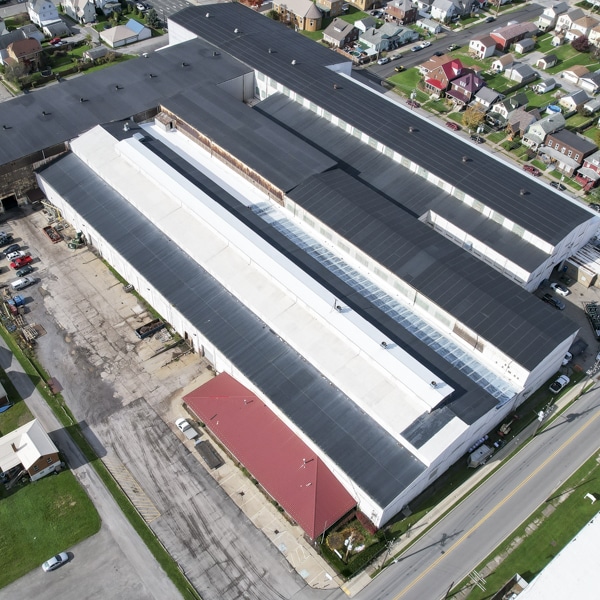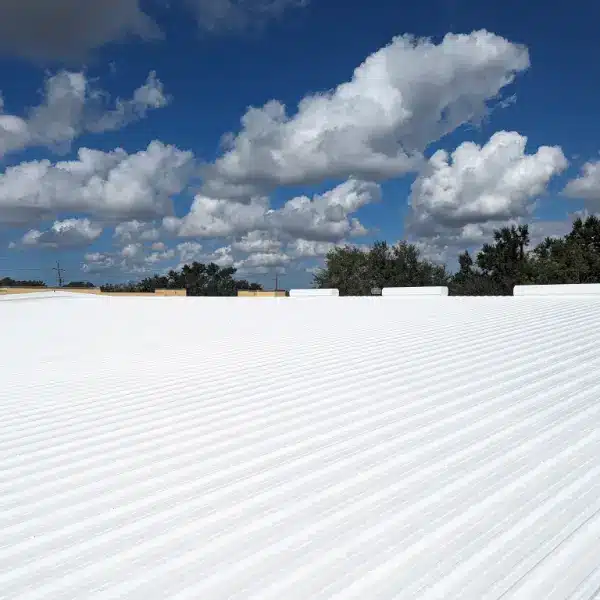Roof Warranty
A healthy roofing system is essential to maintaining any commercial building, especially since wiring, cabling, communications, HVAC, and other critical equipment are often on the roof. It also protects the structure, assets, and employees from exposure to external elements. In addition, proper and routine roof maintenance will help reduce leaks, save energy costs, and protect your investment. Since commercial roofing systems are critical to the operation of your business, it’s important to understand your roof system warranty.

Buyer Beware When It Comes to Warranties in Florida
When it comes to roof system warranties in Florida, it’s often a case of “buyer beware”. That’s because some contractors’ warranties are vague or misleading. This can leave commercial property owners believing that they have more protection than they actually have. Unfortunately, you may come across some unscrupulous contractors whose warranties may be invalid because they used materials or installation methods that the manufacturer did not approve. Therefore, it’s vital to ensure the roofing contractor you hire is certified directly by the manufacturer. This will ensure the correct installation of their roofing products. Otherwise, the manufacturer may deny your warranty claim. You can start with checking the Florida Department of Business & Professional Regulation.
Understanding Your Commercial Roof System Warranty
Did you know that two separate and distinct warranties actually cover your commercial roofing installation? One warranty is from the manufacturer that covers the specific roofing materials that the roofing contractor is approved to install. The other warranty, known as a Contractor’s Workmanship Guarantee or Labor Warranty, is from the roofing contractor that performed the roof system installation. The latter warranty covers labor and workmanship.
Our Non-ProRated Warranty Provides Valuable Coverage for Your Commercial Roof
Many roofing contractors only provide a limited prorated warranty. The Conklin Roof System installed by Troyer Commercial Roofing is backed by an (up to) 20-year non-prorated guarantee on workmanship and coatings (depending on the coating chosen). This means that if your roofing system has a leak or other covered failure in year 20, or any time during the entire 20-year warranty period, Conklin will provide complete, non-prorated reimbursement for the necessary repairs or improvements. Other manufacturers prorate rebates that reduce the claim amount you will receive based on the number of months remaining on the warranty. See your Conklin warranty certificate for complete coverage details, limitations, and exclusions.
Troyer Commercial Roofing Contractor’s Workmanship Guarantee
At Troyer Commercial Roofing, your complete satisfaction is important to us. We’re so confident in the installation and performance of your Conklin Roof System that we back it up with a solid 3-year workmanship guarantee. Many of our competitors offer a 12-month labor warranty on roof installations. However, we believe that it’s important for our customers to see how well their Conklin Roof System performs over several seasons in Florida’s subtropical climate.
 Renewing Your Conklin Roof System Warranty
Renewing Your Conklin Roof System Warranty
With many manufacturers, you start incurring out-of-pocket expenses for roof repairs as soon as the warranty expires. That’s not the case with Conklin’s Full Warranty Coverage. Your Conklin warranty can be renewed for an additional 18 years of protection. This warranty is the strongest roofing system warranty coverage in the industry.
Conklin Commercial Roofing Systems Contractor in Sarasota-Bradenton, FL
Together, Troyer Commercial Roofing and Conklin Roofing Systems offer the most comprehensive warranty protection in the industry. In addition, for a limited time, Troyer Commercial Roofing is offering FREE commercial roof system inspections in Bradenton, Longboat Key, Osprey, South Sarasota, Venice, and surrounding areas throughout Florida. Call to schedule an appointment for a free estimate today.
11 Top Roof Warranty FAQs
1. What does a roof warranty cover?
A roof warranty typically covers materials and workmanship. Material warranties ensure the roofing materials are free from defects, while workmanship warranties cover installation issues. The specifics depend on the provider and the roofing system. For instance, Conklin’s warranties on metal roof restoration include protection against leaks, weather damage, and material failures. It’s important to review your roof warranty for details, as some warranties may not cover damage caused by severe weather, neglect, or improper maintenance.
2. How long does a roof warranty last?
Roof warranties can range from 10 to 30 years, depending on the material and warranty type. Conklin’s metal roof restoration systems often come with long-term warranties, providing protection for decades. Some warranties are prorated, meaning coverage diminishes over time, while others are non-prorated, offering full coverage throughout the warranty period. Understanding the warranty length and conditions is crucial to ensuring your roofing system remains protected for as long as possible.
3. What voids a roof warranty?
A roof warranty can be voided for several reasons, such as improper installation, unauthorized repairs, or lack of regular maintenance. Using non-approved materials or failing to follow manufacturer guidelines may also void the warranty. To ensure your roof warranty stays intact, work with certified contractors like Troyer Commercial Roofing, who are authorized to apply systems like Conklin’s metal roof restoration. Routine inspections and following maintenance recommendations will help you avoid issues that could void the warranty.
4. Is a roof warranty transferable?
Some roof warranties are transferable to new owners, which can add value to your property if you sell. The transferability of a roof warranty depends on the provider and the specific terms. Conklin roof warranties, for example, may offer the option to transfer coverage to a new owner, ensuring ongoing protection for the roof. It’s important to check the transfer terms within your warranty, as some may require notification or a fee to process the transfer.
5. What is the difference between a prorated and a non-prorated roof warranty?
A prorated roof warranty provides reduced coverage as the roof ages, meaning you’ll pay a portion of the replacement or repair costs after a certain period. Non-prorated warranties, on the other hand, cover the full cost of repairs or replacement throughout the warranty term. Conklin’s metal roof restoration warranties, for example, may offer non-prorated options, providing full protection for the entire warranty period. Understanding these terms helps you plan for potential roofing expenses.
6. How do I file a claim?
To file a roof warranty claim, contact the company that issued the warranty. You’ll likely need to provide documentation such as the original contract, proof of installation, and details of the damage or defect. Working with a certified contractor like Troyer Commercial Roofing ensures you receive proper support when filing claims for Conklin’s roof warranties. Acting quickly is important, as delays in reporting issues can result in a denied claim or further damage to the roof.
7. Does a roof warranty cover labor costs?
Some roof warranties cover labor costs, while others do not. For example, Conklin’s metal roof restoration warranties often cover both materials and labor, ensuring that if issues arise due to product failure or poor workmanship, the necessary repairs are included. However, it’s essential to review the specific terms of your warranty, as some only cover the materials, leaving you responsible for labor expenses. Ask your contractor to clarify the labor provisions before installation.
8. Can I extend my roof warranty?
Some roofing companies offer extended warranties for an additional fee. Extensions may provide extra years of coverage or additional protection against specific issues. For Conklin metal roof restoration systems, regular maintenance and reapplications can help maintain and even extend roof warranties. To explore extension options, speak with your contractor about the available plans and what coverage would best suit your long-term needs.
9. What maintenance is required to keep my roof warranty valid?
Most roof warranties require regular maintenance to stay valid. This includes routine inspections, cleaning, and minor repairs to prevent damage. Failing to maintain your roof as outlined in the warranty terms may result in a voided warranty. To ensure you’re complying, consider scheduling annual inspections with Troyer Commercial Roofing. Our team can help you maintain your Conklin metal roof restoration system and make sure your warranty remains intact by addressing potential issues early.
10. What is a workmanship warranty on a roof?
A workmanship warranty covers the quality of the roof installation. If the roof fails due to improper installation, the workmanship warranty ensures repairs or replacements are covered. These warranties often last between 1 to 5 years but can extend depending on the contractor. Troyer Commercial Roofing offers workmanship warranties alongside Conklin’s material warranties for metal roof restoration. Combining both workmanship and material warranties provides comprehensive coverage for your roof, ensuring long-lasting protection.
11. What should I look for in a warranty?
When reviewing roofing warranties, consider coverage duration, whether it covers materials and labor, and if it’s prorated or non-prorated. Additionally, check if the warranty is transferable and what conditions could void it. Look for warranties that cover weather-related damage, as well as workmanship. Conklin’s metal roof restoration warranties, for example, offer comprehensive coverage, including protection against leaks and material failures. Stronger roofing warranties can give you peace of mind and safeguard your roofing investment.
Certified vs Non-Certified Roofing Contractors
Quality of Workmanship
A certified roofing contractor is trained to meet industry standards, ensuring high-quality workmanship. They follow strict guidelines and installation practices, reducing the chances of errors or early roof failures. Non-certified contractors may not have the same level of expertise, potentially leading to poor quality work and frequent issues that could void a roof warranty. Certified contractors often guarantee their work, offering peace of mind that the roof will perform as expected.
Roof Warranty Coverage
Hiring a certified roofing contractor typically ensures that your roof warranty is fully valid. Manufacturers often require certified contractors to install their roofing systems to guarantee the warranty. Non-certified contractors, however, might void the warranty by not adhering to the manufacturer’s guidelines, leaving you without the coverage you need. Certified contractors also assist with any future warranty claims, ensuring smooth processing for repairs or replacements.
Access to Premium Materials
Certified contractors often have access to higher-quality materials directly from manufacturers, ensuring durability and long-term performance. They can offer more reliable and energy-efficient roofing solutions. In contrast, non-certified contractors may use substandard materials, which can compromise the longevity of your roof and increase the likelihood of costly repairs, potentially voiding the roof warranty due to inferior products being used.
Adherence to Safety Standards
Certified roofing contractors are trained in safety protocols and follow industry standards, reducing the risk of accidents or damage during the installation or repair process. They are also usually insured, covering any incidents that may occur on the job. Non-certified contractors may not prioritize safety measures, putting both your property and workers at risk, and may lack insurance, which could leave you liable for accidents.
Compliance with Local Building Codes
A certified contractor understands and complies with local building codes and regulations, ensuring that your roofing project is legal and meets safety standards. Failing to comply with codes can result in penalties, delays, and costly rework. Non-certified contractors may cut corners, leading to code violations that could complicate your roof warranty coverage as well as create long-term structural issues for your property.
Reliability and Accountability
Certified roofing contractors are typically more reliable because they have a reputation to uphold with manufacturers and local authorities. They are more likely to follow through on promises and meet deadlines. Non-certified contractors may be less accountable, potentially leading to project delays, subpar results, and difficulty addressing issues after the job is completed. Certification ensures a higher level of responsibility and customer service.
Post-Installation Support
Certified contractors offer ongoing support and maintenance services after installation. They are committed to the long-term performance of the roof and are often required to provide regular maintenance to maintain the roof warranty. Non-certified contractors might not offer the same level of aftercare, and addressing issues later may become more challenging, particularly when they cannot provide proper documentation for warranty claims.
Insurance and Licensing
Certified roofing contractors are insured and licensed, protecting both you and your property in the event of accidents, property damage, or injuries during the project. Non-certified contractors may lack proper insurance, leaving you vulnerable to liability issues. Furthermore, without appropriate licensing, non-certified contractors could violate local regulations, leading to legal complications that impact the project and even your roof warranty.
Experience and Reputation
Certified contractors are more likely to have a proven track record and positive reputation in the roofing industry. They undergo continuous training to stay updated on the latest roofing technologies and methods. Non-certified contractors might lack the same level of experience and training, leading to inconsistent quality. A certified contractor’s reputation reflects their expertise, reliability, and ability to honor roof warranties, while non-certified contractors might not offer this level of trustworthiness.
Efficiency and Cost Management
Certified contractors are often more efficient in completing roofing projects because of their experience and access to better tools and techniques. They can avoid unnecessary delays, helping you save on labor costs and reduce overall project expenses. Non-certified contractors may not be as efficient, leading to cost overruns and extended timelines. Additionally, their lack of certification could impact your roof warranty, adding future costs due to poor workmanship.
Enhanced Customer Service
Certified contractors tend to prioritize customer satisfaction because they must maintain relationships with both clients and manufacturers. They are often part of professional organizations that hold them to high standards of service. Non-certified contractors might not offer the same level of customer service, which could lead to frustration if problems arise. A certified contractor’s commitment to their certification ensures better communication, service, and support, which ultimately protects your roof warranty and your investment.

 Renewing Your Conklin Roof System Warranty
Renewing Your Conklin Roof System Warranty